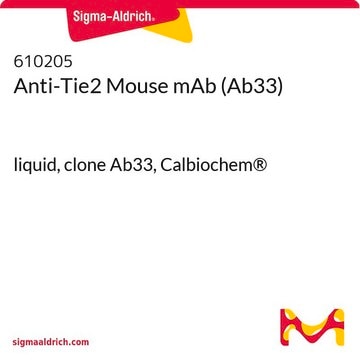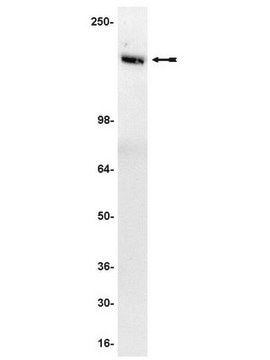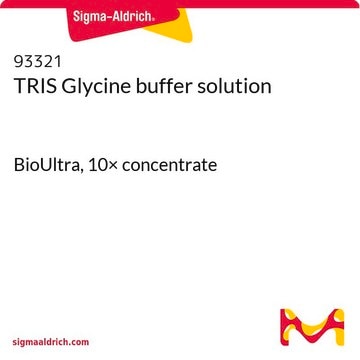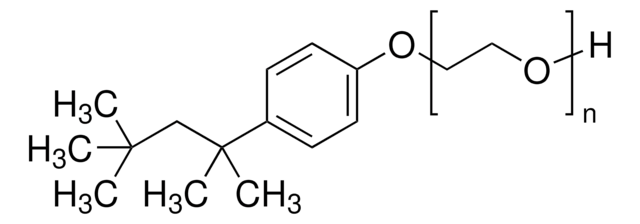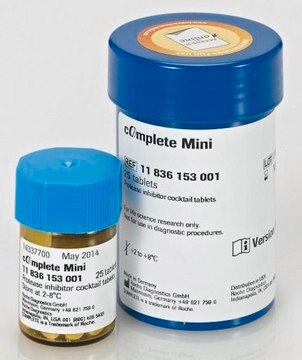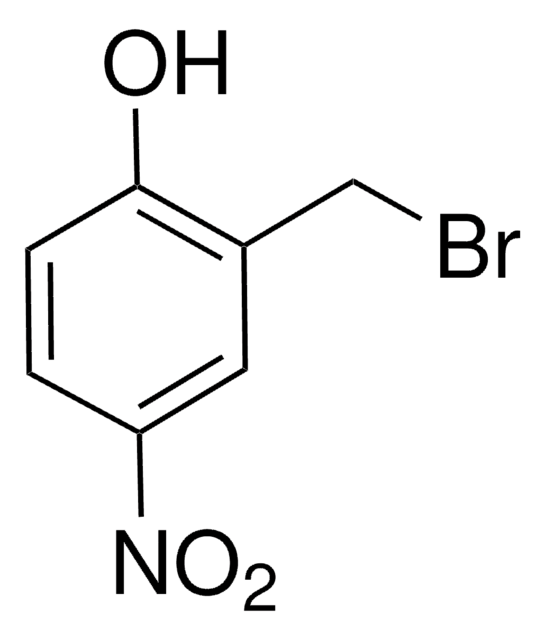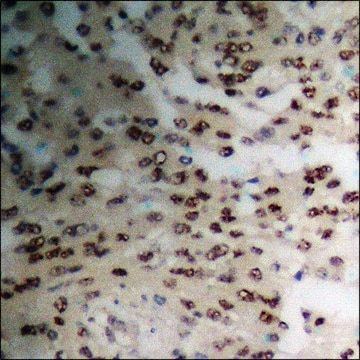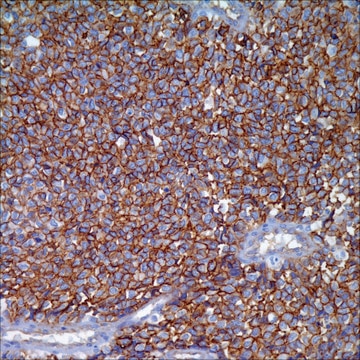07-1431
Anti-Tie-2 Antibody, NT
from rabbit, purified by affinity chromatography
Synonym(s):
CD202b antigen, TEK tyrosine kinase, endothelial, Tunica interna endothelial cell kinase, Tyrosine-protein kinase receptor TEK, Tyrosine-protein kinase receptor TIE-2, p140 TEK, soluble TIE2 variant 1, soluble TIE2 variant 2, venous malformations, multip
About This Item
Recommended Products
biological source
rabbit
Quality Level
antibody form
affinity purified immunoglobulin
antibody product type
primary antibodies
clone
polyclonal
purified by
affinity chromatography
species reactivity
human, mouse, rat
technique(s)
western blot: suitable
NCBI accession no.
UniProt accession no.
shipped in
wet ice
target post-translational modification
unmodified
Gene Information
human ... TEK(7010)
General description
Specificity
Immunogen
Application
Signaling
Growth Factors & Receptors
Quality
Western Blot Analysis: 1:1000 dilution of this lot detected Tie-2 in 10 µg of human brain lysate.
Target description
Linkage
Physical form
Storage and Stability
Analysis Note
Human brain lysate
Other Notes
Disclaimer
Not finding the right product?
Try our Product Selector Tool.
recommended
wgk_germany
WGK 2
flash_point_f
Not applicable
flash_point_c
Not applicable
Certificates of Analysis (COA)
Search for Certificates of Analysis (COA) by entering the products Lot/Batch Number. Lot and Batch Numbers can be found on a product’s label following the words ‘Lot’ or ‘Batch’.
Already Own This Product?
Find documentation for the products that you have recently purchased in the Document Library.
Our team of scientists has experience in all areas of research including Life Science, Material Science, Chemical Synthesis, Chromatography, Analytical and many others.
Contact Technical Service